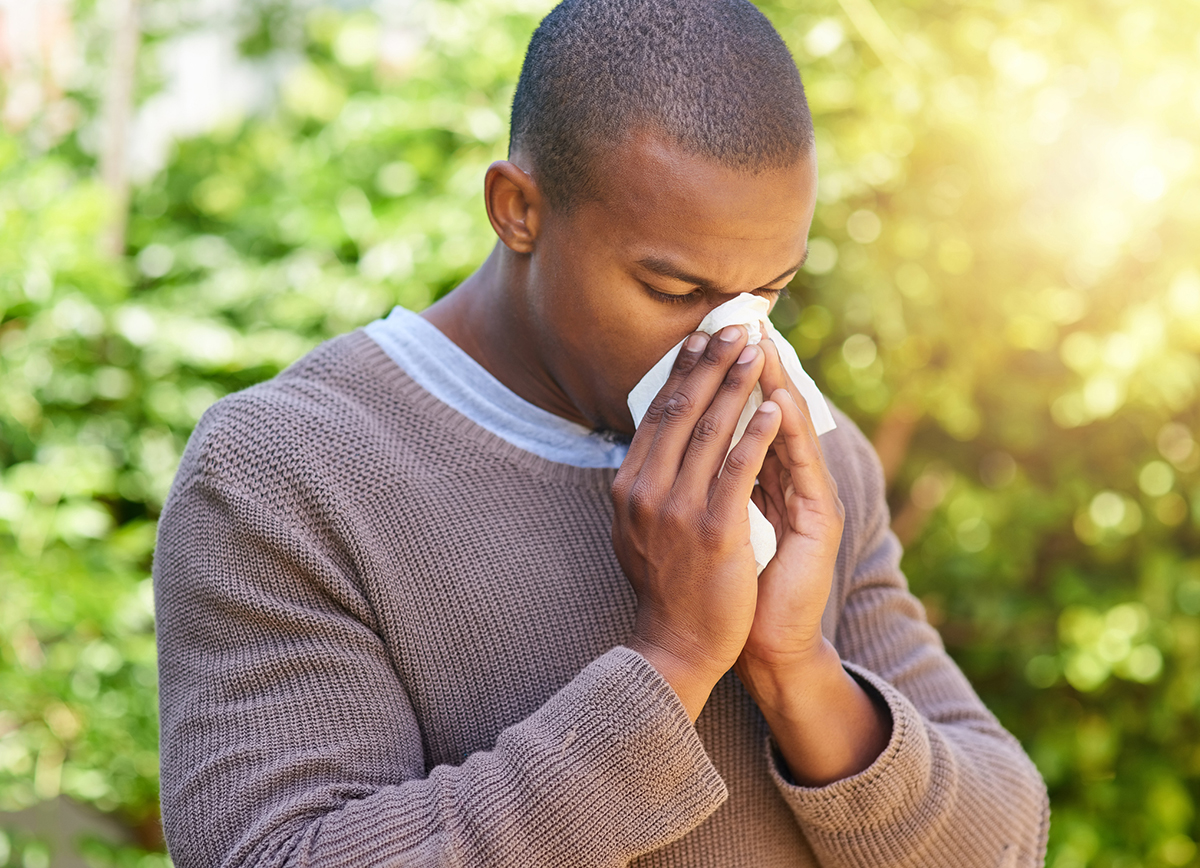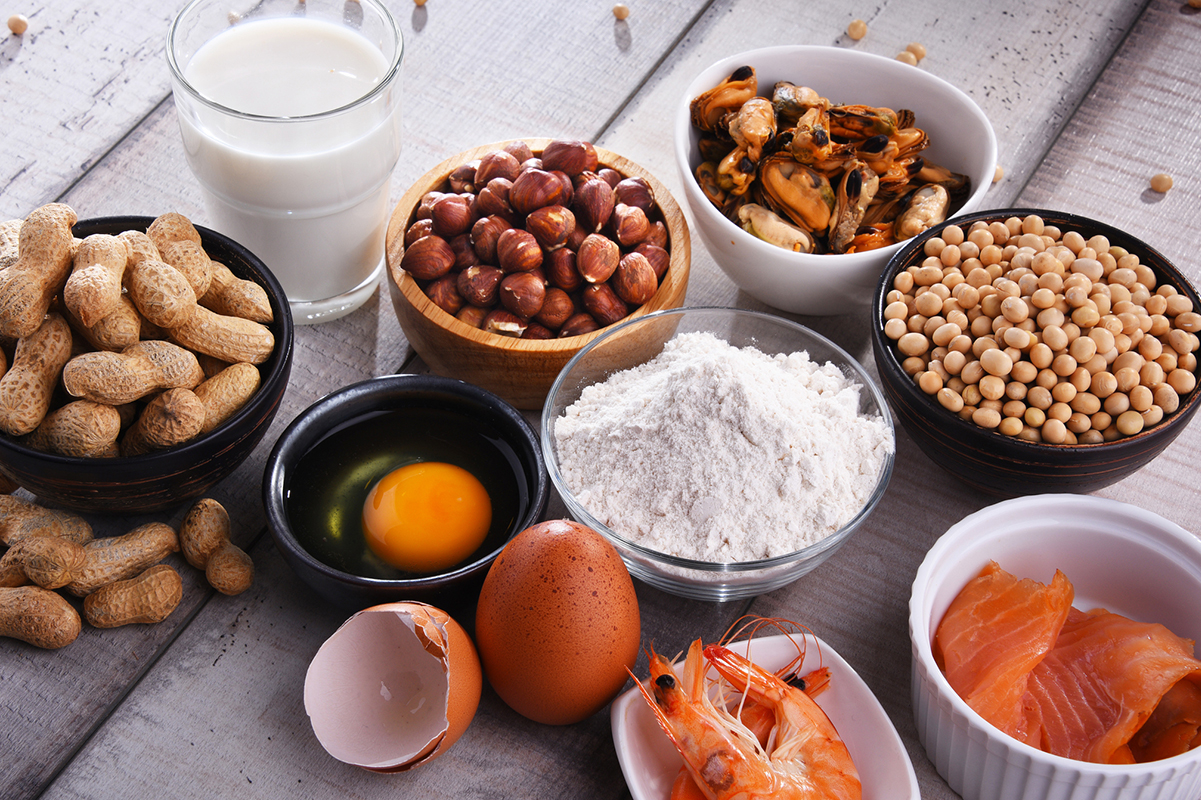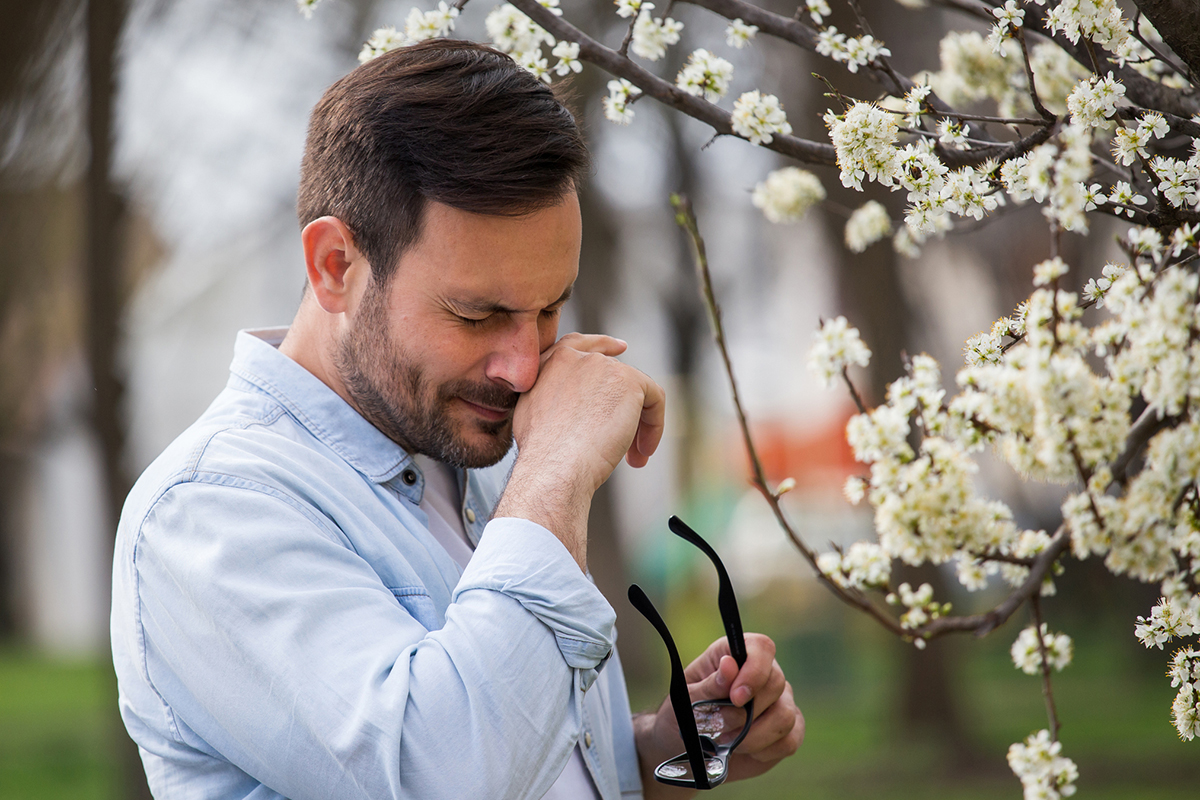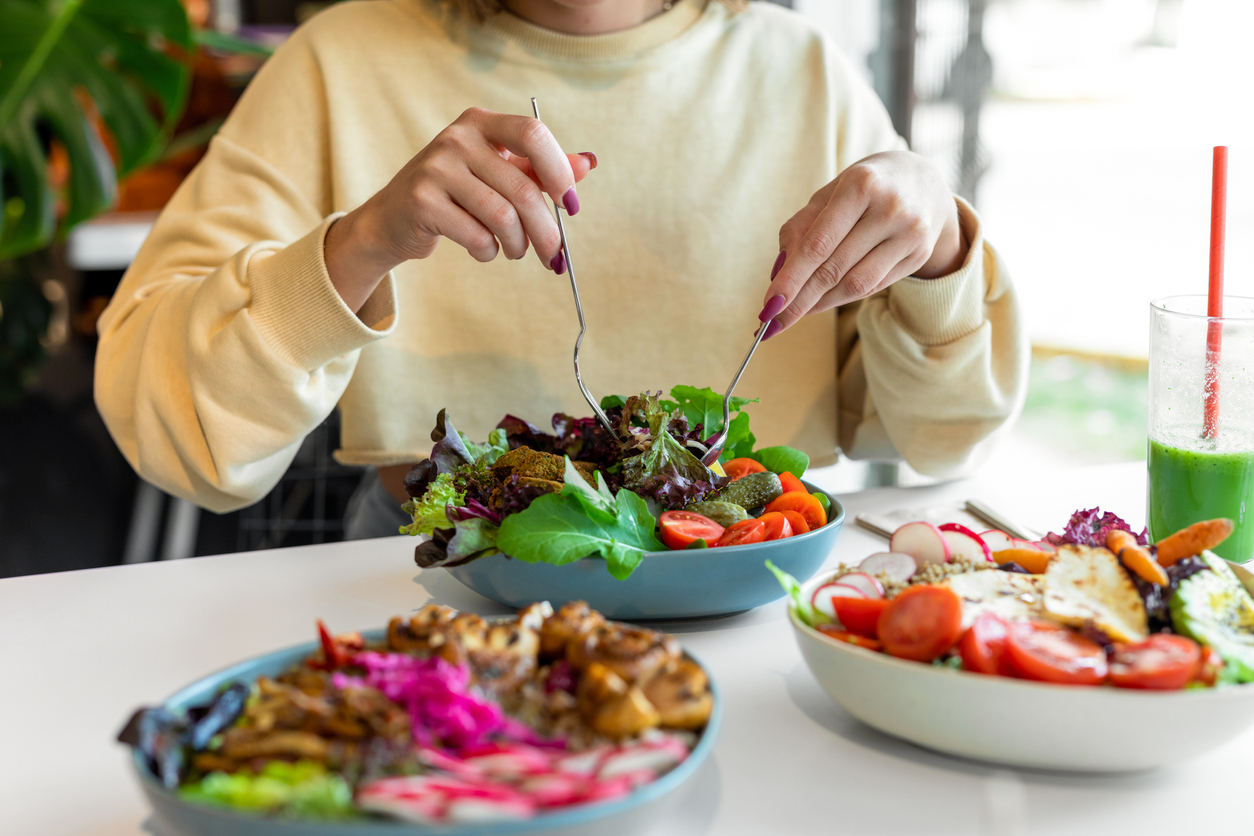If you’re like many of us, this time of year can be both beautiful and vexing. Blossoms begin to adorn our trees, and our cars and patios are coated with a dusting of yellowish-green pollen. For spring allergy sufferers, that means itchy, burning red eyes; scratchy throats; sneezing; wheezing; coughing; and sinus congestion.
Prescription and over-the-counter medications can suppress symptoms temporarily, but side effects abound, and they don’t get to the root of the problem. Next week, I’ll be giving you a list of my favorite natural products for tackling allergies, but first I want to share ten tips for easing the discomforts of allergy season—or better yet, preventing them!
PASS ON THE PIZZA! When pollen comes on like gangbusters, your allergy “cup” runneth over, so to speak. Low-grade chronic allergies to dairy and gluten, often quiescent during the deep-freeze, may contribute to overload when seasonal allergens make their appearance. Many of my patients report their allergy symptoms are better when they eliminate potential food allergens, and I find the same is true for me.
HOP ON THE WAGON! Beer, wine and liquor contain histamine, produced by yeast and bacteria during the fermentation process. If you’re going to imbibe, clear distilled alcohols such as vodka and gin seem better-tolerated, but only in moderation.
SKIP THE SUGAR! Sugar promotes yeast overgrowth, which triggers allergic symptoms.
AVOID HISTAMINE TRIGGERS: In addition to wine and beer, a host of foods boost histamine, resulting in histamine intolerance.
GET SOME (REALLY) FRESH AIR! No, not the outdoors kind. Cloister yourself inside during the couple of weeks when spring pollens peak with the air conditioner on (provided its mechanical innards are mold- and dust-free) and consider getting a HEPA filter for your bedroom to pull indoor allergens out of circulation. And make sure air fresheners and detergent and fabric softener fragrances aren’t adding to your nose woes. (For a truly impressive visual of tree pollen—and more tips for avoiding pollen exposure—check out this article and associated video.)
GIVE YOUR HOUSE A CHECKUP: Frequently, hidden sources of mold or VOCs from new carpets or furniture can be allergy triggers.
BE BORN IN A MANGER! Maybe too late for you but interesting nonetheless: Studies show that kids who are born on farms and grow up playing in the dirt with animals have fewer allergies as they age.
AVOID ANTIBIOTICS: Studies show that frequent use in childhood ups the risk for asthma and other allergic disorders.
DRINK OOLONG TEA! I credit Dr. Leo Galland with this suggestion. He states that in laboratory studies, the catechins found in oolong tea were shown to inhibit allergic reactions.
TRY ‘IMMUNE BALANCE SOUP’: Another of Dr. Galland’s tips from his book The Allergy Solution. Sauté three cups of sliced carrots in three tablespoons of extra-virgin olive oil for 10 minutes. Add one cup of chopped parsley, two cups of chopped scallions (green parts only), 12 ounces of chopped broccoli, three ounces of chopped baby kale, one teaspoon of turmeric powder and one-quarter teaspoon of ground black pepper. Add salt to taste. Cook and stir for one minute. Add 12 cups of water, and bring to a boil. Cover and simmer for 20 minutes. Add one tablespoon of shredded daikon radish just before serving.
I hope these tips will help see you through the dreaded spring allergy season.








